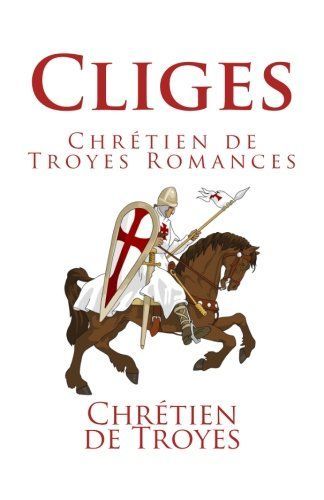
Cliges (Chretien de Troyes Romances)
Cliges is the second of five surviving Arthurian poems by twelfth-century French poet Chretien de Troyes. In Cliges, Chretien creates his most artful plot and paints the most starkly medieval portraits of any of his romances. The world he describes has few of the safeguards and protections of civilization: battles are brutal and merciless, love is anguished and desperate. Cliges tells the story of the unhappy Fenice, trapped in a marriage of constraint to the emperor of Constantinople. Fenice feigns death, then awakens to a new, happy life with her lover. Enormously popular in their own time, each of Chretien's great verse romances is a fast-paced psychologically oriented narrative. In a rational and realistic manner, Chretien probes the inner workings of his characters and the world they live in, evoking the people, their customs, and their values in clear, emotionally charged verse. Cliges is filled with Chretien's barbs and bawdiness, his humor and his pleasure, his affection and his contempt. Chretien de Troyes was a French poet and trouvere who flourished in the late 12th century. Little is known of his life, but he seems to have been from Troyes, or at least intimately connected with it, and between 1160 and 1172 he served at the court of his patroness Marie of France, Countess of Champagne, daughter of Eleanor of Aquitaine, perhaps as herald-at-arms (as Gaston Paris speculated). His work on Arthurian subjects represents some of the best regarded of medieval literature. His use of structure, particular in Yvain, the Knight of the Lion, has been seen as a step towards the modern novel. Chretien's writing was very popular, as evidenced by the high number of surviving copies of his romances and their many adaptations into other languages. Three of Middle High German literature's finest examples, Wolfram von Eschenbach's Parzival and Hartmann von Aue's Erec and Iwein, were based on Perceval, Erec, and Yvain; the Three Welsh Romances associated with the Mabinogion, Peredur, son of Efrawg, Geraint and Enid, and Owain, or the Lady of the Fountain are derived from the same trio. Especially in the case of Peredur, however, the connection between the Welsh romances and their source is probably not direct, and has never been satisfactorily delineated. Chretien also has the distinction of being the first writer to mention the Holy Grail (Perceval) and the love affair between Queen Guinevere and Lancelot (Lancelot), subjects of household recognition even today.